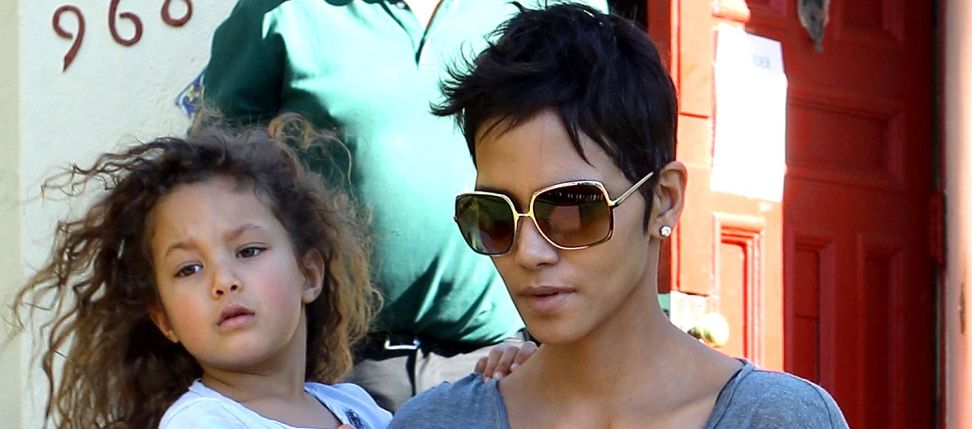To Stay Nappy or Make Daddy Happy: An Open Letter to Halle Berry

by Saaraa Bailey
Dear Halle,
First, let me apologize for the potential invasiveness of this letter. The racial components of your very public custody battle, while personal, also reflect the politics that burden black women and children throughout the world. What appears to be meddling is actually much deserved contemplation of how being a person of color is still largely regarded as a problem or inconvenience.
I have always admired you. I admired your desire to exist beyond beauty, and your allegiance to blackness. As I say “allegiance to blackness,” I can feel the eyes rolling across America. Your candid expression of learning to see yourself as a black woman despite being born to a white woman, depicts the reality of being black in America. You, President Obama, and others demonstrate that being mixed race does not negate an individual’s blackness. In America, blackness shapes how an individual is perceived. Thus we must choose if we portray blackness to be a source of pride or shame.
Perhaps Gabriel Aubry, Nahla’s father, is one of those individuals that profess to “not see color, the problematic catchphrase of our “post racial society.” The issue with “not seeing color” is that it implies that color is a burden itself, whereas it is the connotation of color that is the problem. I suppose Gabriel’s “not seeing color” may have initially attracted you to him. However, while he undoubtedly saw a black woman when he first met you, the revelation of your white mother afforded you a “pass” to a man who had no interest in being intertwined with black culture. Gabriel’s failure to see color in you, has enabled his inability or unwillingness to see Nahla as a little girl of color. By straightening and coloring of Nahla’s virgin locks, this is his way of erasing her black ancestry.
While Nahla certainly bears many of his facial figures, she inherited your mocha skin and curly dark locks. By dyeing and straightening her hair, Gabriel—as a white man—is suggesting that your daughter be more like him and less like you, both literally and figuratively. This is not the typical feud between separated partners co-parenting a child. Gabriel’s actions have shifted the personal to political. And the political component of this feud forces the burden of assimilation onto the innocence of a six-year-old child.
As black women, we live on the margins of both our race and gender. As a result, we have learned to read between the lines of others’ subtle actions in regards to both. We know many of the subtleties tossed onto our path aren’t as casual as they appear. Gabriel, as a white man, can’t see that the altering of his child’s appearance suggests there is a problem to be corrected. And while many have criticized you for straightening and lightening your hair, the difference is you made the decision to do so as an adult woman. The implications of a parent forcing their young child to do so are vastly different.
There are many who believe that nurturing Nahla in black culture is wrongly imposing said culture on a child “who is more white than black.” Those who say this are undoubtedly ignorant of the torment and shame mixed race black children are made to feel regarding their blackness. The presence of a black parent in a child’s life—who is otherwise seen as racially ambiguous—who affirms their place within black culture dramatically changes how others see them, as well as how they see themselves.
I hold hands with you, Halle, and commend you for issuing an early lesson of self-love onto your daughter—and to the many brown faces, like myself, who look up to you. The fight to affirm your daughter’s blackness is not only worthy of praise, but it is also necessary.
While Gabriel is certainly Nahla’s father, she is inevitably Halle Berry’s daughter. She is inevitably the daughter of a black woman.
Sincerely,

No comments: